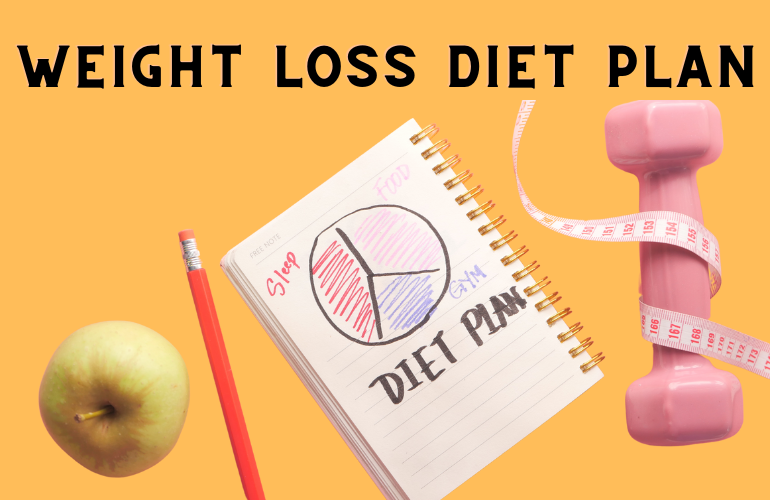Weight Loss in 15 Days Diet Plan
This weight loss plan features numerous scientific techniques as well as healthy whole food products that will help you feel your best.
Goal of this diet is to create an energy deficit so you can lose weight at an efficient and manageable rate. Meal plans consisting of high proteins, moderate carbs and reduced fat are recommended.
1. High Protein Diet
A diet rich in proteins is an effective way to accelerate metabolism, burn fat and shed unwanted pounds. A high protein diet also reduces cravings and makes dieting easier while building muscle mass and increasing energy. When selecting protein-rich food such as meat, fish, dairy products or eggs that is low in both calories and fat.
Chicken breast provides lean, healthy protein with only minimal amounts of saturated fats. Another good choice for lean proteins and nutrients is white fish such as cod, tilapia or haddock which contain minimal levels of saturated fats while still providing essential proteins and other vital vitamins and minerals.

Cheese, nuts, seeds and whole grains are also great sources of protein-rich food, while processed carbs like bread and pasta contain higher caloric intake while offering less nutrition. Furthermore, vegetables provide essential fiber as well as many essential vitamins and minerals.
Protein-rich meals can help you feel full and satisfied for longer, which makes it easier to reduce overall caloric intake throughout the day. Protein can reduce hunger hormone ghrelin while raising levels of peptide YY, which keeps you feeling satisfied.
While more research needs to be conducted, evidence exists suggesting that a high-protein diet may help people lose weight and build muscle simultaneously. Furthermore, such diets may improve bone density and decrease osteoporosis risk when coupled with resistance training; unlike other diets that increase kidney damage risk.
2. Moderate Carbohydrate Diet
Carbs provide our bodies with energy. After digestion, carbohydrates are broken down into sugars which enter our blood stream for energy use – any excess being stored as fat cells. Some research suggests that restricting carbohydrates may aid weight loss; however, more investigation needs to take place into how much restriction is optimal in long-term weight management.
Study results published in BMJ show that overweight participants were separated into four diet groups for 20 weeks: low carbohydrate diet group, low fat diet group and two moderate carbohydrate groups. Their energy expenditure was measured, and one group’s increase was greater than any of the others – suggesting restricting carbohydrates rather than calories may provide effective long-term weight control strategies.
A healthy carb diet should include whole grains, legumes and non-starchy vegetables. Sugary treats like candy, soda, ice cream cookies and cake should be kept to a minimum – the body doesn’t need too many carbohydrates but it is important that they come from sources with sustainable nutrition.
Review of literature revealed that consuming moderate carbs is best for long-term weight loss and decreasing cholesterol, triglycerides, and the glycemic index. Furthermore, this diet provides essential fiber, calcium, magnesium and iron. Incorporating processed carbs is to avoid higher obesity rates and cardiovascular diseases linked with these high glycemic foods which contribute to their consumption – while eliminating processed carbohydrates is to prevent future weight issues and heart diseases.
3. Low Fat Diet
A low fat diet has long been used as an approach to weight loss, and may provide benefits including the prevention of heart disease and certain cancers. When combined with healthy “good” fats and nutrient-rich carbs and proteins sources, such as beans or nuts, a low-fat diet can be extremely successful; however it should be remembered that too few essential fatty acids may limit its efficacy; leading to vitamin or mineral deficiency and vitamin depletion.
This diet typically prohibits all foods containing more than 10% of total calories from saturated or trans fats, including lean meats, eggs, poultry, seafood and whole grains that naturally have lower fat contents; in addition fruits and vegetables along with non-fat dairy products should also be consumed on this diet plan. Many ‘low fat’ or ‘fat free’ products can also be found at grocery stores like cereals, frozen meals snack bars and salad dressings which may be labeled healthy but should only be consumed sparingly.

Setting aside calories, exercising regularly, and managing portions are integral parts of any weight-loss plan. Include both cardio and strength training exercises into your routine in order to burn extra calories while improving fitness levels and supporting weight loss.
Though significant weight loss may take more than 15 days, following a healthy eating plan and regular exercise can still help. A combination of high-protein, moderate carbs, and low fat is likely to get you there faster; meal planning/prep can be particularly useful to limit unhealthy choices; yoga practice will enhance overall health and well-being; by making these simple changes you will notice an improvement in both weight and appearance, as well as feeling healthier and more energetic!
4. Meal Planning and Preparation
Losing weight in 15 days is achievable if you follow a nutritious diet plan, such as one consisting of high proteins, moderate carbs and low fat foods. Eating this way promotes weight loss quickly while supporting balanced lifestyle and good health – plus ensures blood chemistry checks like thyroid, vitamin D and vitamin B12 remain normal prior to starting any diets!
Meal planning and preparation are integral parts of creating a healthy meal plan. By setting aside just a little time each week to develop one, meal planning can save both stress and money in the long run, and help keep you on track with your nutrition goals as well as reduce food waste. Meal planning doesn’t have to be complex – all it takes is writing out your list of meals and snacks!
A healthy meal plan should consist of a variety of food groups, including fruits, vegetables, whole grains and lean proteins. You should aim for maximum nutrient density while limiting empty calorie sources such as soda or processed snacks.
This 14-day meal plan features delicious and clean eating recipes designed to help you feel energized and satisfied. While designed for 2,000-calorie consumption daily, you can adjust it as necessary based on your individual needs. In addition, the plan provides snacks and beverage recipes, providing plenty of variety within each meal plan. Make sure to consume a protein-rich snack after every workout, and drink lots of water and unsweetened tea/coffee in order to stay hydrated!
5. Yoga
Yoga practiced regularly can help build strength and tone muscles while burning calories; an efficient yoga workout may even help you lose weight faster!
Reducing stress levels, which can contribute to excess weight gain, as well as improving sleep and lowering blood pressure are important benefits for overall health and weight loss.
Yoga practice can help you feel good about yourself, making it easier to avoid tempting unhealthy food options. Furthermore, practicing yoga provides you with a sense of community support – an invaluable component of maintaining healthy habits.
Yoga practitioners tend to form large networks with other yogis who serve as role models and promote healthier lifestyle behaviors, which is key as research shows social networks have a major impact on eating and exercise habits.
Yoga offers another great benefit – strengthening the core. Many poses specifically targeted towards strengthening core muscles – like downward dog and plank – are intended to do just this, such as downward dog and plank. Bridge pose also works well at toning core and back muscles simultaneously. Bradley advises beginners to begin with easier yoga poses before progressing onto more difficult ones.
Though rapid weight loss in 15 days may be unlikely, you can achieve positive results by including yoga into a healthy diet and regular exercise routine. Just remember that sustainable, healthy weight loss takes time and requires consistency – and always consult a medical expert prior to beginning any new fitness program.


